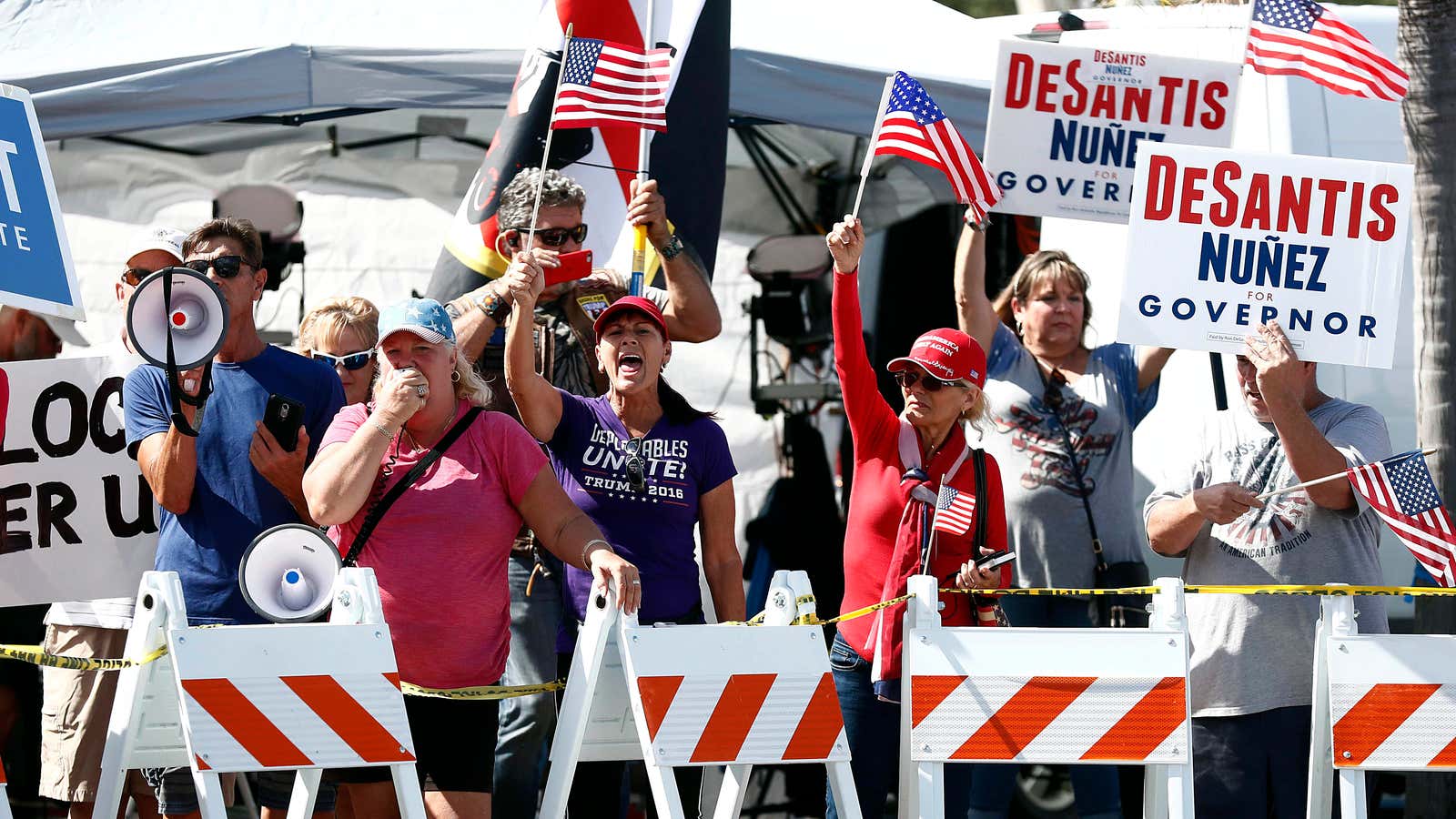In Florida, Georgia, and Arizona, they’re still counting the votes days after the election, but Americans will be arguing about them into 2020. Indeed, voting rights will be a major issue as the new Democratic majority in the House of Representatives faces off against president Donald Trump.
Trump’s supporters are already setting up noisy protests outside Florida government buildings where recounts are taking place. Trump and Florida Republican senator Marco Rubio have been arguing, without providing any evidence, that the delay is a symptom of vote fraud. It’s reminiscent of Trump wrongly claiming after his 2016 election victory—which was tainted by the fact that he lost the popular vote—that millions of undocumented immigrants had voted illegally.
Meanwhile, ascendant House Democrats are intent on bringing about legislation to restore sections of the Voting Rights Act, a landmark Civil Rights–era law designed to fight political discrimination by local officials.
In 2013, the Supreme Court ruled that jurisdictions, even ones with a history of racial discrimination, no longer needed approval from the federal government to change voting requirements. After that, Republican state governments began rolling out a raft of new restrictions on voters.
In Georgia, for example, Brian Kemp—the top official supervising elections as well as a candidate for governor—implemented rules that disenfranchised mostly black voters. He himself was mistakenly told he could not vote on election day, and forced to resign following a lawsuit. Now, though vote counting continues, he is avoiding a run-off election by .3 percentage points.
A Democratic majority in the House could push through an update to the Voting Rights Act that returns protection to minority voters, or encourages improvements like simplified ballots, expanded early voting, vote-by-mail, and automatic voter registration. Such a proposal would not likely be passed by the Republican-majority Senate—or be signed by Trump—but would serve as a “message” bill designed to draw contrasts between the two parties ahead of the 2020 elections.
Democrats have rallied in the past by campaigning against disenfranchisement. This year, a Florida ballot measure restored voting rights for an estimated 1.5 million former felons. In Georgia, voters turned out in record numbers, resulting in the closest race for a state-wide office since the turn of the century. Native American voters in North Dakota, who say they were targeted by a law that changed address requirements for voting, actually turned out in higher numbers.
But the party did not succeed (barring recount surprises) in winning top-of-the-ticket races in these states, and Republicans are likely to welcome a tussle over who can vote. The white nationalist conservatism dominant in the GOP closely links immigration and minority participation in US culture to voting rights. In 2017, Trump’s administration launched a much-criticized commission to investigate “voter fraud,” which found no evidence that it was prevalent.
But at least one major proponent of voter fraud allegations will be out of the picture: Kris Kobach, the chair of that commission, lost his bid to become Kansas governor.
